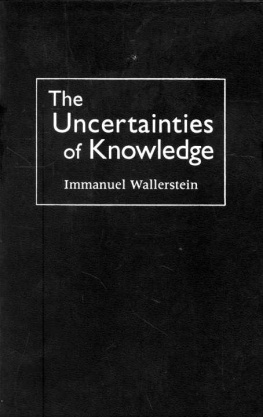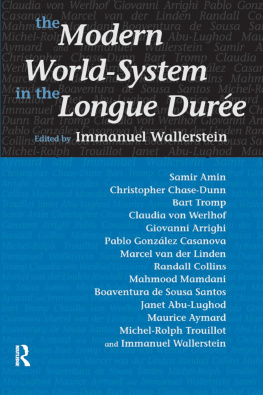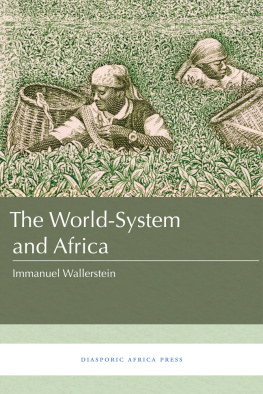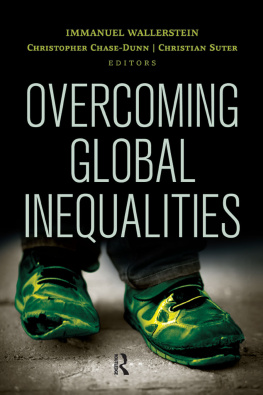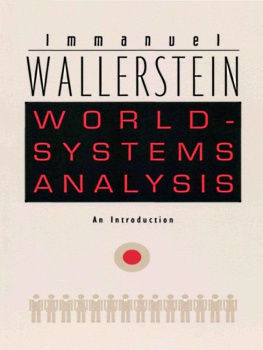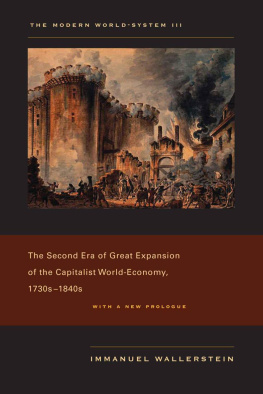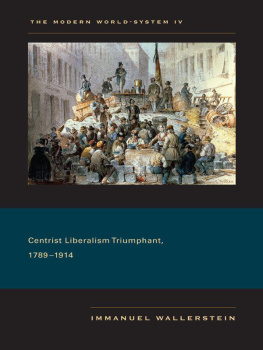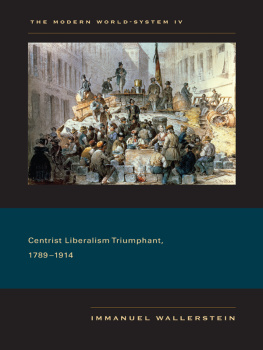



To the memory of Ilya Prigogine (19 17-2003) Scientist, Humanist, Scholar
Contents
PART I. The Structures of Knowledge
PART II. Dilemmas of the Disciplines
The
Uncertainties
of
Knowledge
Introduction
The Uncertainties of Time
Time in most ways seems so certain to us. These days, almost everyone has a watch and can measure the time that is passing. Yet nothing is in fact more uncertain than time. It is not quite a social illusion, but it is very nearly so. Consider this.
We all live in the present. Most of us think we know, or know best, what is happening now, at least in our immediate environs. Yet the present is the most evanescent of realities. The present is over the nanosecond it occurs. It cannot be recaptured. It can be recorded at most ultra-partially. It is remembered badly. Its memory and its records can easily be faked. It is rare that two eyewitnesses to the same event observe it in the same way, and rarer still that they remember it in the same way.
And yet we live in the present and are constantly making decisions, acting singly and collectively, to affect the present. Probably nothing matters to most of us as much as the present. In order to make these decisions in the present, singly and collectively, we invoke the past. But what is the past? In reality, the past is what we in the present think it is. No doubt there is a real past, but we can only know it in the present, through whatever lens we wish to apply to it. And of course, as a result, we all see different pasts. We see different pasts as individuals, we see different pasts as groups, we see different pasts as scholars.
Not only do we see different pasts, but it is terribly important to all of us that we impose our vision of the past on everyone else. It is terribly important because the modal images of the past at any moment are a determining element in the actions of the present at that moment. Furthermore, our modal images of the past are not stable. They change constantly, almost as rapidly as the present. This is because our actions in the present require that the past be reinterpreted. The politics of the present is insistent and persistent in this regard. Governments argue about the past, social movements argue about the past, scholars argue about the past. Nor are these arguments gentle dispassionate debates. On the contrary, these debates are ferocious, often angry, sometimes death-dealing. And they are never resolved. The most that happens is that a wide consensus is temporarily built, a consensus that always has dissenters and that lasts as long as it lasts in the places in which it takes hold.
Well then, what of the future? Faced with the ephemeral nature of the present, and the ever-changing nature of the past, many flee into the future and seek certainty there. The basis of this certainty about the future can be theological or political or scientific. But since the future has not yet happened, it can never be ascertained whether these predictions are in fact correct. Predictions that involve specific short-term statements have been regularly shown not to hold, or not to hold precisely. And eschatologies are intrinsically unverifiable. Faith in the future has varied over historical time. It was unusually strong in the nineteenth and twentieth centuries. But at the end of that period, a wave of disillusionment swept the globe, and large numbers of peo- pie lost this faith. Still, there always remain some who invest in the certainties of the future.
So here we are. We cannot know the present, we cannot know the past, we cannot know the future. Where does that leave us, and in particular where does it leave social science, which is devoted presumably to explaining social reality? In great difficulty, I should think. We are not, however, without resources. If we take uncertainty as a basic building block of our systems of knowledge, we may perhaps be able to construct understandings of reality that, albeit inherently approximate and certainly not deterministic, will be useful heuristically in focusing us on the historical options we have in the present in which we all live.
This book is an attempt to explore the parameters of such uncertain knowledge, and to suggest what might be done to enhance its value and make it more relevant to our individual and collective needs, passions, and hopes. Science is an adventure and an opportunity for us all, and we are called to participate in it, to build it, and to know its limitations.
PART I
The Structures
of Knowledge
1
For Science,
Against Scientism
The Dilemmas of
Contemporary
Knowledge Production
Science is under attack these days. It no longer enjoys the uncontested esteem it has had for two centuries as the most certain form of truth-for many, the only certain form of truth. We had become accustomed to believe that because theology, philosophy, and folk wisdom were all contestable as claims to truth, only science could offer certainty. The very modesty of the scientists' claims-all scientific assertions are subject to revision if and when new data become availableseemed to distinguish it from these rival forms of truth assertion, which scientists asserted to be ideological or speculative or traditional or subjective, hence less (even far less) reliable. For very many, the label "scientific" and the label "modern" became virtually synonymous, and for almost everyone the label was meritorious.
In the past twenty years, however, science has come under the identical form of attack to which the scientists had long subjected theology, philosophy, and folk wisdom. Now science too is being accused of being ideological, subjective, and unreliable. It has been argued that one can discern in the theorizing of scientists many a priori premises that ultimately reflect nothing but currently dominant cultural views. It has been argued that scientists manipulate data and then manipulate the credibility of the public audience. To the degree that these charges can be sustained, they would of course merely be subjecting scientists to the same kinds of critical cultural judgment to which scientists have subjected all others.
Some critics, however, have gone further. They have made the case for the nonexistence of universal truth, for the necessary subjectivity of all knowledge assertions. The response of the scientists to this stronger criticism, this expression of total relativism, has been to denounce such attacks as the return of irrationalism. Some scientists have gone still further and have asserted that even the moderate criticisms of science, based on an analysis of the social embeddedness of scientific activity, have been nefarious, in that they have provided the entry onto the slippery slope that leads eventually to nihilistic relativism.
Culturally, this is where we are today worldwide. We find ourselves in a conflict of mutual name calling in the ongoing struggle for the control of resources and of institutions of knowledge. It is time we took stock and reflected on the philosophical premises of our scientific activity and the political context of the structures of knowledge.

